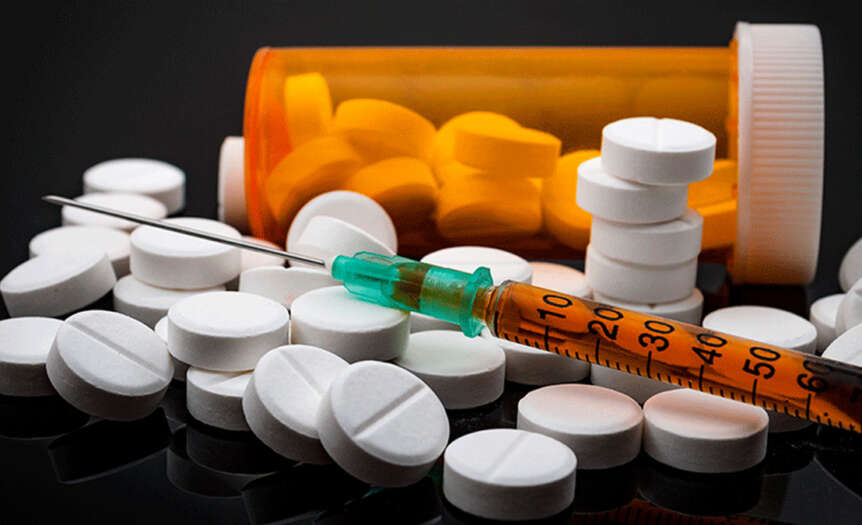Driven primarily by the opioid epidemic, drug overdose deaths have reached over 100,000 annually, according to a new report by the Centers for Disease Control and Prevention. The report highlights overdose deaths from synthetic opioids (primarily fentanyl), psychostimulants like methamphetamines and cocaine.
The Dangers of Synthetic Opioids
Experts contribute the rise in overdose deaths to the increased use of fentanyl and the COVID-19 pandemic, as recently reported by CNN. The pandemic has also caused synthetic opioids to be more readily available than their “natural” opiate counterparts, partly due to supply chain breakdowns. This caused users to seek out other new sources, increasing the possibility of overdose because the drug could be cut with a stronger and more powerful substance unbeknownst to the consumer. For example, an opioid cut with fentanyl will be 100 times more powerful than the same drug cut by morphine.
Common Signs of Opioid Use Disorder
Opioid addiction or dependency is known medically as “opioid use disorder.” The disorder is classified by the inability to abstain from taking opioids and a daily life centered around opioid use resulting in disastrous consequences. Johns Hopkins Medicine lists 12 signs of opioid abuse, and they are as follows:
- The inability to control opioid use
- Cravings, which a person cannot control
- Sleepiness or exhaustion
- Changes in sleeping patterns
- Sudden weight loss
- Recurring flu-like symptoms
- Decrease in libido
- Disregard of general hygiene
- Change in exercise habits
- Withdrawal or isolation from friends and family
- Stealing from friends, family, or businesses
- Novel financial struggles
- What to Do if a Loved One Is Abusing Opioids
If a friend or family member suspects a loved one is addicted to opioids, the best course of action is to immediately contact their physician. Medical professionals may provide treatment for opioid use disorder or may refer an individual to a treatment facility. Common medications for the treatment of opioid addiction include methadone, buprenorphine, or naltrexone. When combined with physiological support programs, these medications can be surprisingly effective in helping an addicted individual recover.
Call a Dangerous Drug Attorney
Often, individuals find themselves in the midst of an opioid use disorder when the medication is wrongly prescribed, the appropriate dosage is not followed or an illicit version of the drug is consumed. In terms of personal injury law, the first of these fall into the realm of medical malpractice, while the product or drug itself may also be at fault under the legal term of product liability.
If you or a loved one has been seriously harmed or died from a prescription drug overdose, you should immediately call a dangerous drug attorney. The lawyers of Panter, Panter & Sampedro have the experience and resources to help you recover what you deserve. For a free case review, call 305.662.6178.
Sources: https://apple.news/AnVWpb6BLR9mTrcrF_IiQNA; https://www.cdc.gov/nchs/pressroom/nchs_press_releases/2021/20211117.htm; https://www.cdc.gov/opioids/data/analysis-resources.html; https://www.commonwealthfund.org/blog/2021/spike-drug-overdose-deaths-during-covid-19-pandemic-and-policy-options-move-forward; https://recoverycentersofamerica.com/blogs/opiate-vs-opioid-do-you-know-the-difference/; https://www.mayoclinic.org/diseases-conditions/prescription-drug-abuse/in-depth/how-to-tell-if-a-loved-one-is-abusing-opioids/art-20386038; https://medlineplus.gov/genetics/condition/opioid-addiction/; https://www.drugabuse.gov/drug-topics/opioids/opioid-summaries-by-state; https://www.hopkinsmedicine.org/opioids/signs-of-opioid-abuse.html; https://panterlaw.com/product-liability/dangerous-drugs/










 Deering Estate
Deering Estate
 Massage Envy South Miami
Massage Envy South Miami
 Calla Blow Dry
Calla Blow Dry
 My Derma Clinic
My Derma Clinic
 Sushi Maki
Sushi Maki
 Sports Grill
Sports Grill
 The Healthy Kitchen
The Healthy Kitchen
 Golden Rule Seafood
Golden Rule Seafood
 Malanga Cuban Café
Malanga Cuban Café

 Kathleen Ballard
Kathleen Ballard
 Panter, Panter & Sampedro
Panter, Panter & Sampedro
 Vintage Liquors
Vintage Liquors
 The Dog from Ipanema
The Dog from Ipanema
 Rubinstein Family Chiropractic
Rubinstein Family Chiropractic
 Your Pet’s Best
Your Pet’s Best
 Indigo Republic
Indigo Republic




 ATR Luxury Homes
ATR Luxury Homes


 2112 Design Studio
2112 Design Studio
 Hamilton Fox & Company
Hamilton Fox & Company
 Creative Design Services
Creative Design Services
 Best Pest Professionals
Best Pest Professionals
 HD Tree Services
HD Tree Services
 Trinity Air Conditioning Company
Trinity Air Conditioning Company
 Cisca Construction & Development
Cisca Construction & Development
 Mosquito Joe
Mosquito Joe
 Cutler Bay Solar Solutions
Cutler Bay Solar Solutions


 Miami Royal Ballet & Dance
Miami Royal Ballet & Dance
 Christopher Columbus
Christopher Columbus
 Pineview Preschools
Pineview Preschools
 Westminster
Westminster
 Carrollton
Carrollton
 Lil’ Jungle
Lil’ Jungle
 Frost Science Museum
Frost Science Museum
 Palmer Trinity School
Palmer Trinity School
 South Florida Music
South Florida Music
 Pinecrest Orthodontics
Pinecrest Orthodontics
 Dr. Bob Pediatric Dentist
Dr. Bob Pediatric Dentist
 d.pediatrics
d.pediatrics
 South Miami Women’s Health
South Miami Women’s Health

 The Spot Barbershop
The Spot Barbershop
 My Derma Clinic
My Derma Clinic




 Miami Dance Project
Miami Dance Project

 Rubinstein Family Chiropractic
Rubinstein Family Chiropractic
 Indigo Republic
Indigo Republic

 Safes Universe
Safes Universe
 Vintage Liquors
Vintage Liquors
 Evenings Delight
Evenings Delight





 Atchana’s Homegrown Thai
Atchana’s Homegrown Thai
 Baptist Health South Florida
Baptist Health South Florida

 Laser Eye Center of Miami
Laser Eye Center of Miami
 Visiting Angels
Visiting Angels
 OpusCare of South Florida
OpusCare of South Florida

 Your Pet’s Best
Your Pet’s Best





 HD Tree Services
HD Tree Services
 Hamilton Fox & Company
Hamilton Fox & Company


 Creative Design Services
Creative Design Services